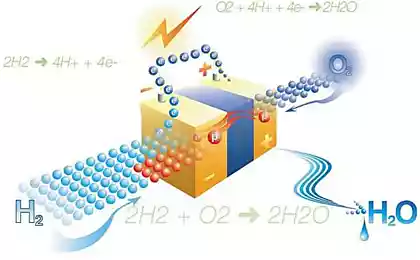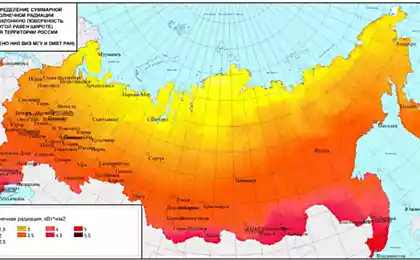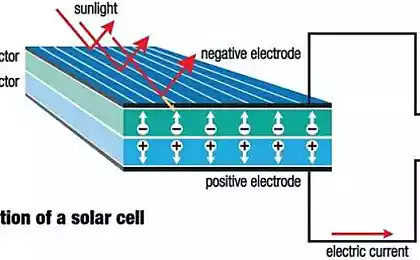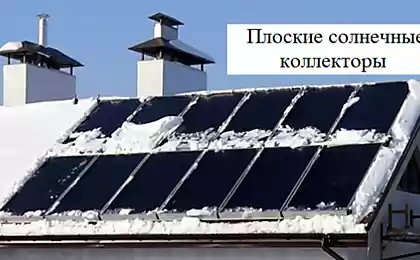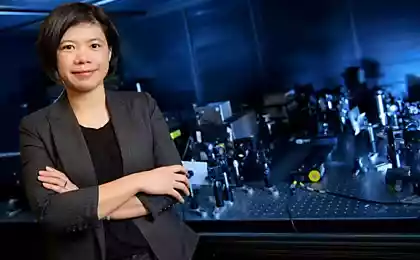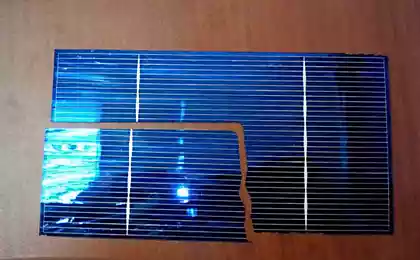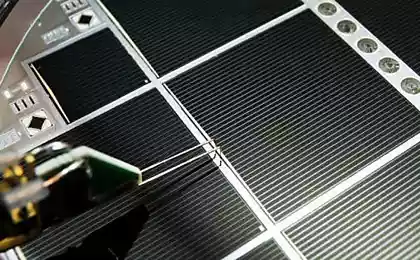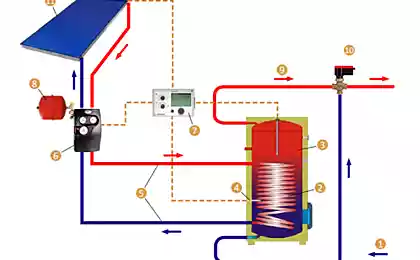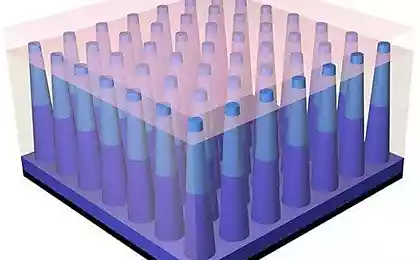494
Japanese engineers have doubled the efficiency of solar cells
Scientists at Kyoto University have used optical technology to create reliable converters of heat into electricity, which is double the performance of solar cells. "Modern solar cells do not cope with the conversion of visible light into electricity. The best efficiency of approximately 20%," says Takashi Asano from the University of Kyoto.

High temperatures emit light at short wavelengths that is why the flame of a gas burner becomes with increasing temperature blue. The higher the heat, the more energy and shorter waves.
"The problem — explains Asano, is that the heat scatters light of all wavelengths but the solar cell works only in a narrow wavelength range. To solve it we created a new semiconductor nano-scale, which narrows the wavelength range for the concentration of energy."
To highlight the visible wavelengths requires a temperature of 1000° C, but the usual silicon melts at temperatures above 1400° C, so the researchers protravel on silicon boards a lot of identical and equidistant cylinders with a height of about 500 nm, placed at a certain distance from each other and optimized for the desired range.

This material allowed the scientists to raise the efficiency of semiconductor as at least 40%.
"Our technology has two important advantages, — says head of the laboratory of the University Susumu Noda. — First of all, its energy productivity — we can convert heat into electricity more efficiently than before. Secondly, its design. Now we can create converters smaller and more reliable, and they find practical application in several industries".
The peak solar cell efficiency of 26% was achieved by scientists at the University of California at Berkeley last year. The breakthrough came by combining the two perovskite of materials, each of which absorbs different wavelengths of sunlight. published
P. S. And remember, only by changing their consumption — together we change the world! ©
Source: hightech.fm/2017/01/19/kioto-solar-cell

High temperatures emit light at short wavelengths that is why the flame of a gas burner becomes with increasing temperature blue. The higher the heat, the more energy and shorter waves.
"The problem — explains Asano, is that the heat scatters light of all wavelengths but the solar cell works only in a narrow wavelength range. To solve it we created a new semiconductor nano-scale, which narrows the wavelength range for the concentration of energy."
To highlight the visible wavelengths requires a temperature of 1000° C, but the usual silicon melts at temperatures above 1400° C, so the researchers protravel on silicon boards a lot of identical and equidistant cylinders with a height of about 500 nm, placed at a certain distance from each other and optimized for the desired range.

This material allowed the scientists to raise the efficiency of semiconductor as at least 40%.
"Our technology has two important advantages, — says head of the laboratory of the University Susumu Noda. — First of all, its energy productivity — we can convert heat into electricity more efficiently than before. Secondly, its design. Now we can create converters smaller and more reliable, and they find practical application in several industries".
The peak solar cell efficiency of 26% was achieved by scientists at the University of California at Berkeley last year. The breakthrough came by combining the two perovskite of materials, each of which absorbs different wavelengths of sunlight. published
P. S. And remember, only by changing their consumption — together we change the world! ©
Source: hightech.fm/2017/01/19/kioto-solar-cell
TROLZA in 2018 launch 10 new models of electric vehicle
An entertaining puzzle game about the stolen egg with a surprise
